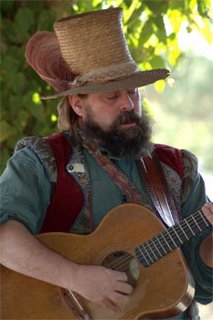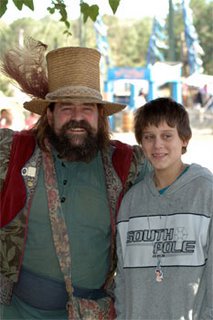As a computer system administrator, I have been, unknowingly, familiar with trilemmas for many years. Software programmers are notorious for glacial progress in delivering the product. The following is the software programmer's humorous response to questions of when will be ready
- I can do it quickly
- I can do it cheaply
- I can do it right.
C.S. Lewis, in Mere Christianity, offered a trilemma in response to those who claim Jesus was a great moral teacher, but not the Son of God.
I am trying here to prevent anyone saying the really foolish thing that people often say about Him: "I’m ready to accept Jesus as a great moral teacher, but I don’t accept His claim to be God." That is the one thing we must not say. A man who was merely a man and said the sort of things Jesus said would not be a great moral teacher. He would either be a lunatic — on the level with the man who says he is a poached egg — or else he would be the Devil of Hell. You must make your choice. Either this man was, and is, the Son of God: or else a madman or something worse. You can shut Him up for a fool, you can spit at him and kill Him as a demon; or you can fall at His feet and call Him Lord and God. But let us not come with any patronising nonsense about His being a great human teacher. He has not left that open to us. He did not intend to.To summarize:
Mere Christianity -- Book 2, Chapter 3
Assuming that Jesus, in fact, claimed to be the Son of God, there are three possibilities:
- He was not, and he knew it, therefore he was lying.
- He was not, but he sincerely thought he was, therefore he was delusional.
- He was who He said He was -- The Son of God.
This isn't the only time Lewis employed a trilemma. In The Lion, The Witch, and The Wardrobe, Peter and Susan are discussing their concerns about Lucy with the Professor. The Professor questions them about Lucy's general truthfulness compared with Edmund's reputation for unreliability, and says this:
"There are only three possibilities. Either your sister is telling lies, or she is mad, or she is telling the truth. You know she doesn't tell lies and it is obvious that she is not mad. For the moment then and unless any further evidence turns up, we must assume that she is telling the truth."Of course, the Professor did not need to convince himself that Lucy was truthful, as subsequent books in the Chronicles of Narnia make clear. But in this case it had the effect of causing Peter and Susan to take a step back and think about the ramifications of disbelieving their youngest sibling -- who had never before given them cause to doubt her word. Were they, themselves, convinced? Not yet. Ultimately, like Jesus' disciple Thomas, Peter and Susan had to see in order to believe.
The Lion, The Witch, and The Wardrobe, chapter 5
Lewis' Trilemma may not be useful in all situation, but is IS a good response to the "Jesus was nothing more than a great moral teacher" belief of many who otherwise reject the idea that God became Man. It seems reasonable to make it a part of our apologetics framework and to use it when appropriate.
For further reading:
- Peter S. Williams exhaustive apologetics treatment of Jesus (link is to a Microsoft rtf document
- The Narnian Trilemma by Victor Reppert (Author of C. S. Lewis's Dangerous Idea: In Defense of the Argument from Reason, Intervarsity Press)
- Vox Apologia Symposium on the Narnian Trilemma









